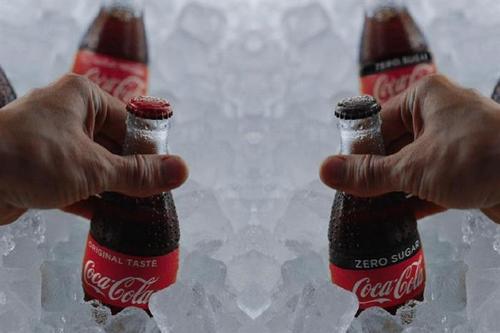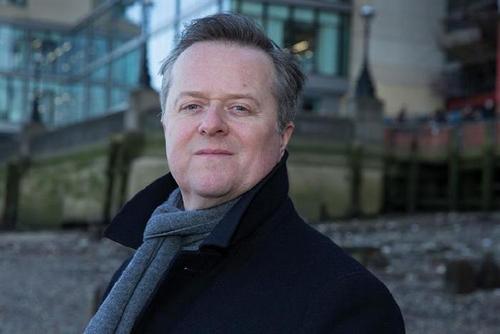Before Procter & Gamble Chief Brand Officer Marc Pritchard took the stage at the 2018 AdColor Conference – and received his first of three deserved standing ovation – he showed “The Talk”, a powerful film that shines a light on racial bias.
“It was a powerful statement, but it wasn’t without controversy”, he said. On the positive side, one group of people was grateful and another didn’t know the biases existed and wanted to learn more. The negative responses were from people who denied the biases or were angry that a company was taking a stand on social issues. They even sent hate mail to P&G and asked the company to stick to selling products.
“If not us, then who? If not now, then when? We didn’t stop. In fact, we doubled down on advertising spend and PR”, said Pritchard.
P&G champions diversity and equality and uses its advertising for good, but Pritchard said getting to this commitment has been a journey both personally and professionally and “it hasn’t always been a smooth one.”
Even though he said he was “really nervous” and it’s a little “awkward and emotional”, he shared his personal moments of truth with the audience because leaders sharing their journeys can “help inspire more action.”
“I’ve been exposed to diversity my whole life”, said Pritchard.

His father was Mexican American and an activist for migrant farm workers; most of the schools he attended growing up were half black; his family brought him up Christian; he has black people in his family; he has three daughters.
On paper, Pritchard said it might look like taking a stand for equality would be come naturally. However, several critical moments of truth helped him gain the conviction to step up.
One was about 20 years ago when he was a general manager on the CoverGirl business. At the end of a family trip to a spiritual ranch in Colorado, the week leader went up to Pritchard and said, “I hope you realize the difference you can make because business will be the greatest force for good in the future – not the clergy, not politics. Your brands touch people everyday.”
“This was a blinding moment of clarity”, said Pritchard.
CoverGirl had just created its new “Easy, Breezy, Beautiful” campaign with five women who were “too young, too thin and too white”, he said. “It was a stereotypical standard of beauty.”
Pritchard said he realized that CoverGirl’s advertising has a real impact on how people view beauty.
After that, P&G partnered with Queen Latifah, who revolutionized the brand and women’s empowerment and brought diversity to the brand.
The second moment of truth was “more difficult”, said Pritchard.
Awhile after becoming the executive director of the African Ancestry Leadership Network, Pritchard said his efforts drifted and P&G started to lose market share among black consumers. It caused a crisis of confidence in the black leaders at P&G. They decided to confront Pritchard, the CEO and HR with their concerns and asked for an intervention.
“This was a profound and painful moment. The pain and disappointment because of those people I let down. I asked myself, ‘Do I slink away or step up?’ I decided to step up”, said Pritchard.
He began engaging in deep dialogues with friends and colleagues, who he said were willing to educate him and share their feelings. P&G started “fishbowl sessions”, where black employees courageously share the realities of what they face inside and outside of work.
“I was shocked and angry at the bias that existed – the comments, dismissals, micro-aggressions and exclusions”, said Pritchard. “We set goals at the top to be the best company for African American employees and the best brands for African American consumers.”
The company created a multi-year program, where people of all races can come together, share problems, learn from each other and become champions and allies. P&G also externally supports programs like the Essence Festival and the National Urban League Convention.
“We know our voice matters”, he said. “We’re not where we want to be by any stretch, but we’re taking action and moving forward and results are starting to improve again.”
The final moment Pritchard discussed was “the most profound so far” for him, he said.
A few years ago during Hispanic Heritage Month, Tide ran a spot called “Wash Away Labels”, which showed the painful labels Hispanics are often given, such as “gangster” or “drug dealer.”
“It affected me personally because I’m half Mexican”, said Pritchard, who explained this his father was adopted by an English man, hence his last name.
“Entering the workforce, I suppressed my Mexican heritage for fear of being labeled. I didn’t own who I was because I heard those denigrating terms”, he said. “I had to come to grips with my own bias and behaviors. I recognized the privilege of being viewed as white.”
His dad’s father’s last name was Gonzalez, and Marc was nearly named Nick. “Imagine the difference between growing up as Nicky Gonzalez vs. Marc Pritchard”, he said.
Pritchard added that his father told him to mark “Caucasian” on job applications so he didn’t have trouble getting a job. “He did that because he loved me, but it had an affect on me”, he said.
He remembers the first time he said out loud in front of an audience that he is proud to be Mexican American. “It was an emotional moment”, said Pritchard, adding that leaders need to step up and talk about difficult topics in order to encourage changes in behavior and attitudes.
P&G – and Pritchard – are “deeply, passionately committed” to making a difference and using its voice in advertising to promote racial and gender equality”, he said. And it goes all the way through the supply chain – to directors, composers, creative directors, marketing directors and so on.
“We need to get this equality and that means we need everyone to join forces for gender and race, as well as LGBT and people with disabilities”, said Pritchard.
He then showed the P&G “Love Over Bias” spot that shows the obstacles faced by children and teenagers across all walks of life and culture. This received another standing ovation.
“I want to use whatever influence I have to promote equality and make the world a better place”, said Pritchard.
He ended his speech by talking about all of his privileges – and he choked up when he said he hopes his moments of truth were useful and helped inspire everyone in the crowd. Everyone in the packed auditorium stood up for the third time and cheered.


